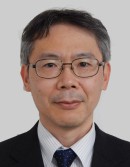Jun Sasaki,
Professor – Environmental Sciences
Contact email address: jsasaki[at]k.u-tokyo.ac.jp
Laboratory web: https://estuarine.jp/?lang=en
Profile
 Prof. Sasaki is a civil engineer with expertise in coastal engineering, eco-hydraulics, coastal environment, and coastal management. He was born in 1967 and raised in Tokyo. He was educated in hydraulics and coastal engineering at The University of Tokyo (UTokyo), earning a Doctor of Engineering in 1996. After shortly working as a postdoc of JSPS Research Fellow, he was appointed Research Associate at Graduate School of Engineering, UTokyo, in 1997. He was transferred to the newly established Graduate School of Frontier Sciences as Associate Professor in 1999. He was then transferred to Department of Civil Engineering, Yokohama National University, in 2002, being promoted to professor in 2009. He returned to Graduate School of Frontier Sciences, UTokyo, in 2013. He also served as visiting scholar at Asian Institute of Technology (December 1999 – February 2000) and the University of Florida (August 2007 – November 2007). He was Chair of the Coastal Engineering Committee, Japan Society of Civil Engineers (JSCE). He was awarded the Paper Award of the Journal of JSCE and the Paper Award of Coastal Engineering, JSCE. He has served as a national and regional government committee member, including Ministry of Land, Infrastructure, Transport and Tourism (MLIT), Fisheries Agency, Ministry of the Environment, and Chiba Prefectural Government. He has been Chair of the Committee on the Role of Blue Carbon in Contributing to the Prevention of Global Warming, MLIT, Member of the Expert Committee on Nature Restoration, and Leader of the Habitat Creation Project Team, Tokyo-Bay Public-Private Cooperation Forum for Tokyo Bay Restoration.
Prof. Sasaki is a civil engineer with expertise in coastal engineering, eco-hydraulics, coastal environment, and coastal management. He was born in 1967 and raised in Tokyo. He was educated in hydraulics and coastal engineering at The University of Tokyo (UTokyo), earning a Doctor of Engineering in 1996. After shortly working as a postdoc of JSPS Research Fellow, he was appointed Research Associate at Graduate School of Engineering, UTokyo, in 1997. He was transferred to the newly established Graduate School of Frontier Sciences as Associate Professor in 1999. He was then transferred to Department of Civil Engineering, Yokohama National University, in 2002, being promoted to professor in 2009. He returned to Graduate School of Frontier Sciences, UTokyo, in 2013. He also served as visiting scholar at Asian Institute of Technology (December 1999 – February 2000) and the University of Florida (August 2007 – November 2007). He was Chair of the Coastal Engineering Committee, Japan Society of Civil Engineers (JSCE). He was awarded the Paper Award of the Journal of JSCE and the Paper Award of Coastal Engineering, JSCE. He has served as a national and regional government committee member, including Ministry of Land, Infrastructure, Transport and Tourism (MLIT), Fisheries Agency, Ministry of the Environment, and Chiba Prefectural Government. He has been Chair of the Committee on the Role of Blue Carbon in Contributing to the Prevention of Global Warming, MLIT, Member of the Expert Committee on Nature Restoration, and Leader of the Habitat Creation Project Team, Tokyo-Bay Public-Private Cooperation Forum for Tokyo Bay Restoration.
Research Interests
Prof. Sasaki has researched the identification and prediction of estuarine and coastal environmental processes, such as field measurements, numerical modeling of physical and biogeochemical processes (e.g., FVCOM-FABM-ERSEM), and application of open-source models for seeking sound resolution for environmental and disaster mitigation issues. Environmental management of semi-enclosed coastal waters for achieving the balance between fisheries and water quality has been an emerging topic. Targeting developing countries such as Bangladesh, Ghana, Indonesia, Myanmar, Sri Lanka, and Vietnam, he has also studied the sustainability of coastal areas using GIS, remote sensing, and questionnaires, including mangrove forest management, coral reef management, and climate change mitigation and adaptation. He has led projects on blue carbon in urban bays and coastal shallow waters, aiming to evaluate carbon removals and emissions along with seeking sound measures for promoting co-benefits of fisheries and other ecosystem services.
Selected Publications
Endo, M., Zhao, Y., Nakamura, W. and Sasaki, J. A practical pCO2 estimation and carbonate dynamics at an event of hypoxic water upwelling in Tokyo Bay. Front. Mar. Sci., 9, 1016199, 2023.
Liu, F., Sasaki, J., Chen, J. and Wang Y. Numerical assessment of coastal multihazard vulnerability in Tokyo Bay. Natural Hazards, 114, 3597–3625, 2022.
Maung, W. S. and Sasaki, J.: Assessing the natural recovery of mangroves after human disturbance using neural network classification and Sentinel-2 imagery. Remote Sensing, 13(1), 52, 2021.
Rakib, M.A., Sasaki, J., Matsuda, H., Quraishi, S.B., Md. Juel Mahmud, Md. Bodrud-Doza, Atique Ullah, A.K.M., Fatema, K.J., Md. Asif Newaz and Bhuiyan, M.A.H.: Groundwater salinization and associated co-contamination risk increase severe drinking water vulnerabilities in the southwestern coast of Bangladesh. Chemosphere, 246, 125646, 2020.
Amunugama, M. and Sasaki, J.: Numerical modeling of long-term biogeochemical processes and its application to sedimentary bed formation in Tokyo Bay, Water, 10(5), 572, 2018.
